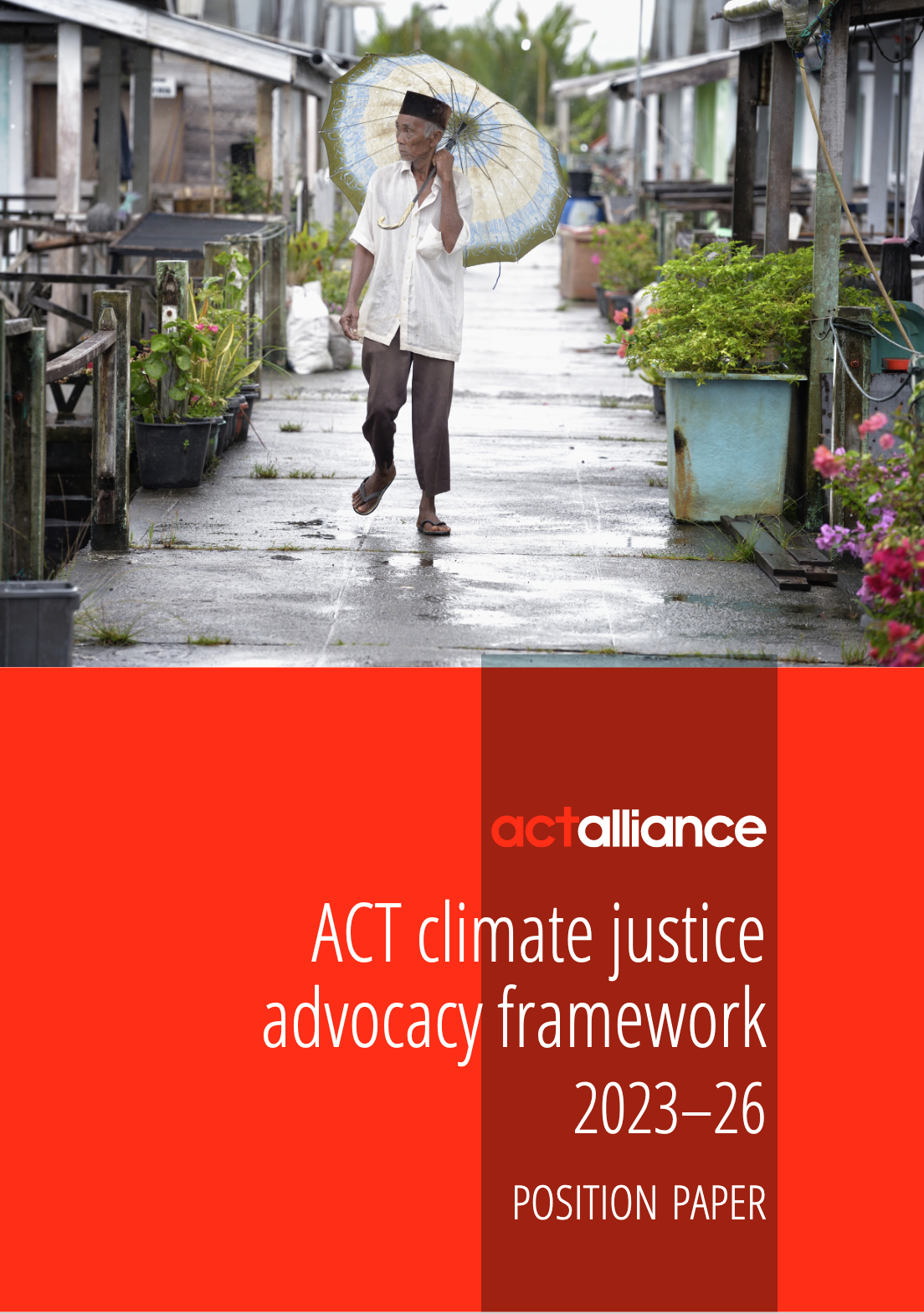Hot off the presses! The Climate Justice Advocacy Framework position paper 2023-26 is now available. “This framework position sets out ACT’s resolve and ambition to advance climate leadership and action in this critical decade of action,” says Julius Mbatia, ACT’s Climate Justice programme manager. “This framework position will help ACT members around the world engage with their national decision makers,” says Mattias Söderberg, chief advocacy officer of DanChurchAid and co-chair of ACT’s Climate Justice Reference Group. “It will amplify our call for climate justice as we speak with one voice.”

The 20-page document was created through a collaborative process with members from around the world who are part of the Climate Justice Advocacy and Programme groups, with guidance from the Reference Group. “The process in which the position paper was developed allowed for the voices from various continents and nations to be heard, especially those from the Global South,” says Dr. Ahmad Safdi, head of mission for Diakonie Katastrophenhilfe in the Middle East, and a member of ACT’s Climate Justice Reference Group. “This made it possible to reflect more deeply on the intersection of climate change impacts, and issues of ultimate importance to the Global South such as the right to development, Indigenous people’s rights, gender equity and equality, colonisation, resilience, and adaptive capacity building.”
The document begins by exploring the values and principles guiding ACT’s climate justice work, then links these values to the struggle for full human rights, gender rights, and community resilience as supported by finance for adaptation and loss and damage. “This framework is a good milestone, providing guidance and inspiration for ACT and the ecumenical family to collectively continue the fight for climate justice,” says Mariana Paoli, Global Advocacy Lead at Christian Aid and a member of ACT’s Climate Justice Advocacy group. “Based on principles of equity and reparations, it calls for ambitious climate action, which is long overdue.”
Speaks to all members
Both those who are new to ACT’s Climate Justice work and those with more experience will find the document useful in articulating a Christian perspective that can be used to promote climate justice in forums from the local to the global. “Our position stresses that we need a green transition, where all fossil fuels are phased out, and where our growth and development become sustainable,” says Mattias Söderberg. “This is also aligned with our Christian beliefs, where we are committed to the care of creation.”
Due to its collaborative writing process, “the position paper grew much more representative of the voices of humanity at large,” says Dr. Safi. “It strives to be the voice of the voiceless including other creatures and ecosystems.” The document and its collaborative process “demonstrate our unwavering commitment to a fair, equitable and responsible multilateral climate regime that delivers on the needs of vulnerable communities,” says Julius Mbatia.
The document underlines the urgent need for concerted action by all ACT members in building a global movement for climate justice and provides clear action points. “Rich countries must urgently phase out fossil fuels while providing their fair share of finance,” says Mariana Paoli. “This will enable the poorest countries to adapt, address loss and damage and drive a just energy transition leapfrogging to a clean future.”
The document notes that ACT Now for Climate Justice Campaign provides a ready vehicle for effective joint climate action. “The core message in this paper is clear,” says Mattias Söderberg. “We need climate justice, and we need it now. There is no more time to waste as we all face a climate crisis.”